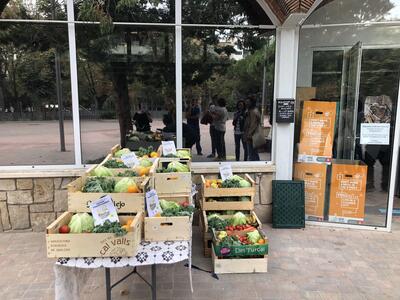FOODCLIC
Integrated urban FOOD policies – developing sustainability Co-benefits, spatial Linkages, social Inclusion and sectoral Connections to transform food systems in city-regions
Technical details
- Partners:
Leader:
Partners:
- Action area:
- Europe
- Subject:
- Socio-economic development
- Budget:
- Total project budget: 11.997.351€ (AMB budget: 739.125€; - 100% cofinanced)
- Financing:
-
-
Horizon Europe

-
- Status:
- In progress
Description
The FOODCLIC project aims to develop integrated urban food policies that develop sustainable co-benefits, spatial links, social inclusion and sectoral connections to transform food systems in city-regions.
Thus, the project will create practical policy interfaces in eight European city-regions, which will be structured into Food Policy Networks, formed in Living Labs that will generate practical learning from an innovative conceptual framework called CLIC. CLIC emphasizes the integration of the food system in order to achieve four outcomes: co-benefits of sustainability, spatial links, social inclusion and sectoral connectivity.
The training and support for the participation of different actors will allow the urban planners of the partner city-regions to develop integrated urban food policies in continuous evolution and to plan food-sensitive frameworks. The learnings will be transferred to eight other city-regions in Europe and Africa, through a Knowledge Hub and a high-level think tank, as well as through partner networks.
In this way, FOODCLIC aims to contribute to urban food environments that make healthy and sustainable food available, affordable and attractive to all citizens (including disadvantaged and vulnerable groups).













































